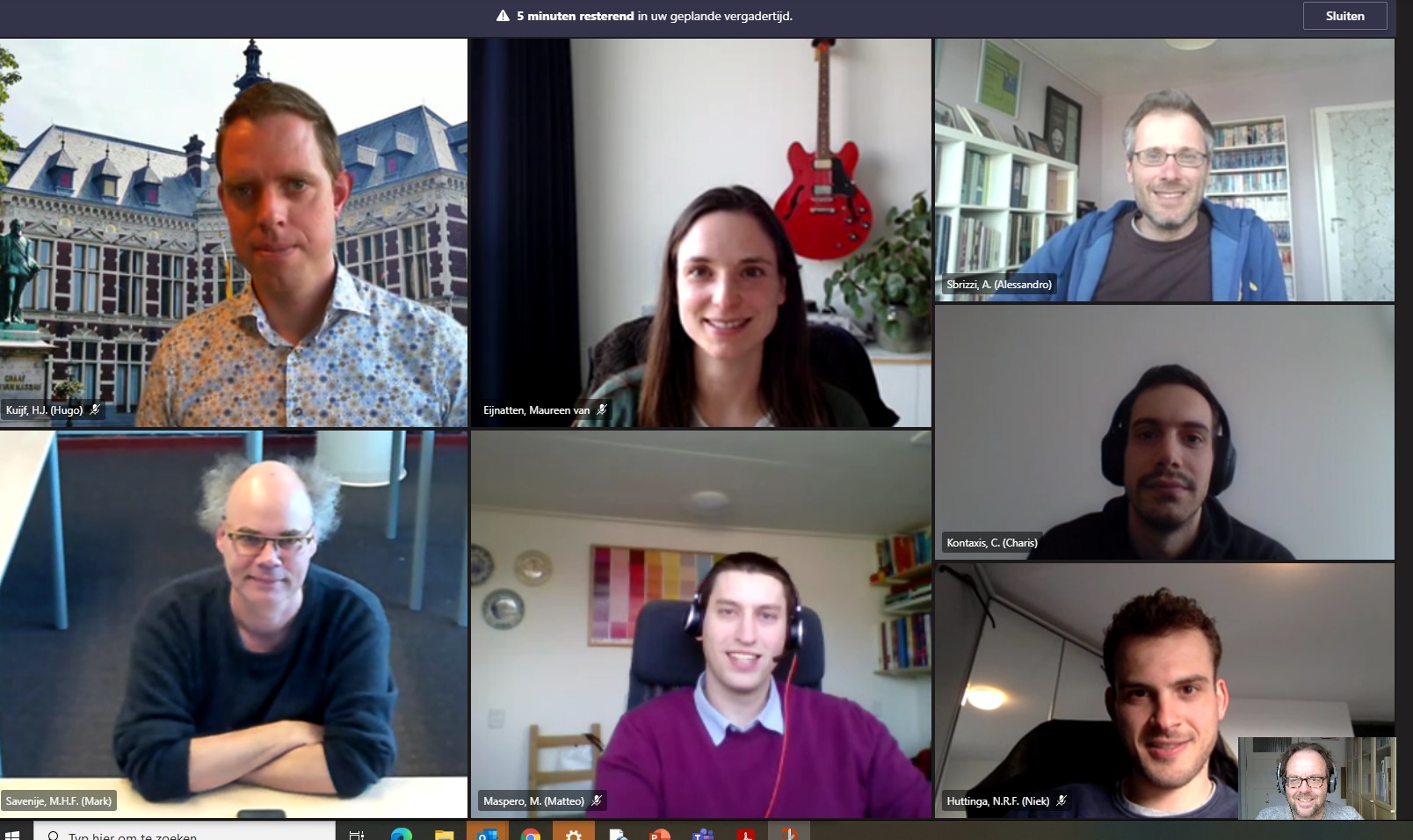

 | Alessandro Sbrizzi is an assistant professor at the Imaging division of the UMC Utrecht. He graduated in Scientific Computing and obtained his PhD in 2013 with a thesis focused on modelling and numerical optimization of MRI acquisition & reconstruction processes. He is a recipient of an NWO-VENI grant 2016 and an NWO Demonstrator grant 2018. |
 | Hugo Kuijf is an assistant professor at the Image Sciences Institute, UMC Utrecht and university lecturer at Eindhoven University of Technology. He graduated in Computer Science at Utrecht University in 2009 and received his PhD in Medical Imaging after defending his thesis entitled "Image processing techniques for quantification and assessment of brain MRI" in 2013. His research focuses on innovative image processing and (deep) machine learning techniques for the quantification and assessment of brain MR images. |
 | Niek Huttinga is a PhD student at the UMC Utrecht, under supervision of Alessandro Sbrizzi and Nico van den Berg. He obtained a Bachelor's and Master's degree in Applied Mathematics and his thesis focused on theory and applications of deep learning. His PhD focuses on model-based iterative motion estimation for the purpose of MR-guided radiotherapy, and he is exploring the use of deep learning in this context. |
 | Nico van den Berg is an MRI-physicist working as Professor at the Imaging Division in the Department of radiotherapy. He heads the newly formed group "Computational Imaging" that focuses on the development and application of new MR image acquisition, reconstruction and processing techniques for radiotherapy and diagnostic applications. In this context, deep learning applications for image manipulations and information extraction became in the last years a key technology in the group's research. |
 | Matteo Maspero is a physicist enrolled as a postdoctoral researcher and clinical scientist at the radiotherapy Department of UMC Utrecht. His primary focus is deep learning for adaptive radiotherapy and image processing. Specifically, he uses deep learning trying to address image synthesis problem and dreaming (or having nightmares) about how to automatically QA the results within a clinical framework. Matteo is known for hyper-coloured presentations, let's see if he will keep up with the expectations... ORCID: https://orcid.org/0000-0003-0347-3375 |
 | Mark Savenije is a scientific programmer having a somewhat nomadic career moving accross several dutch institutes and universities. Funny enough, for the first time he works on topics he should be somewhat knowledgeable about as he graduated in the early 90's on the development of a self-adaptive growing neural network (called the 'Muppet algorithm') which unfortunately did not survive a computer crash and is waiting to be rediscovered. In the mean time he investigates where deep learning techniques can be employed in the RT workflow (organ/CTV segmentation, synthetic-CT's, CBCT correction). |
 | Georgios Tsekas is a PhD student at the UMC Utrecht, under the supervision of Gijsbert Bol and Bas Raaymakers. His main focus is the development of research software for radiotherapy treatment planning. In particular, he uses deep learning for modelling dose calculations and he furthermore explores novel treatment plan optimization techniques for radiation therapy. |
 | Maureen van Eijnatten is an assistant professor at the Medical Image Analysis group (Department of Biomedical Engineering) of the Eindhoven University of Technology. She has a background in medical physics and performed her PhD research on optimizing medical imaging for computer-aided surgery in the Amsterdam UMC. After defending her thesis in 2017, she did a postdoc at the Centrum Wiskunde & Informatica (CWI). Maureen’s research interests include deep learning for cone-beam CT image reconstruction, segmentation and deformable image registration. |
 | Gijsbert Bol is a clinical computer scientist at the radiotherapy Department of the University Medical Center Utrecht. His PhD was focused on developing online treatment planning strategies for MRI-guided radiotherapy. He has extensive experience with translating research software into the clinic, from delineation and treatment planning packages to deeplearning based autosegmentation software. He also has knowledge about the regulatory implications involved with using homebrew software in a clinical environment. |